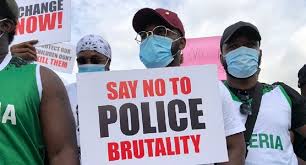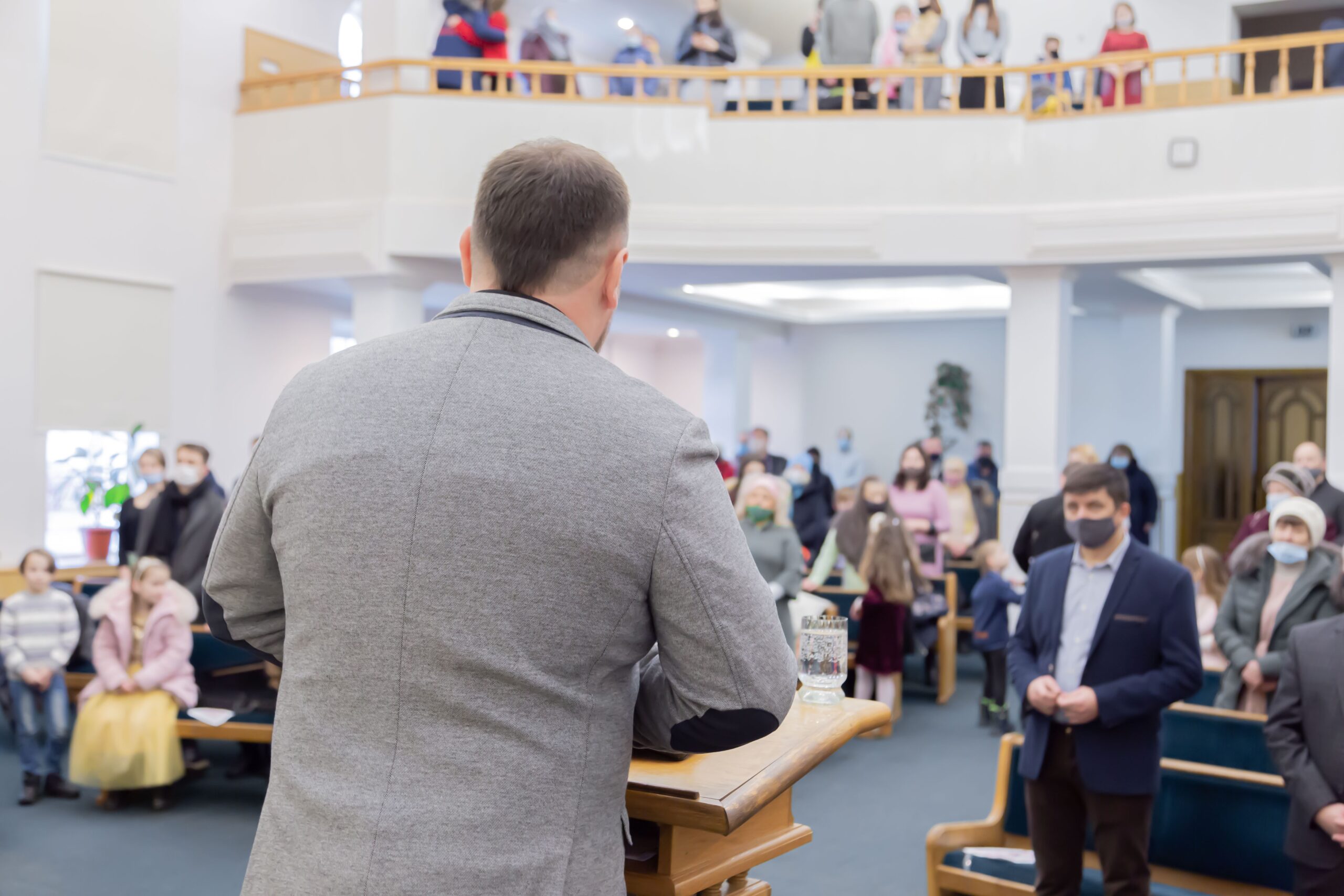Hate evil, love good,
And establish justice in the gate!
Perhaps the Lord God of hosts
may be gracious to the remnant of Joseph – Amos 5:5
Introduction
The people of God are called to love good and hate evil. In this text, a manifestation of that evil is injustice. The only way the remnant of Joseph could receive God’s grace again was to hate evil and love good – establish justice in the gates.
Our hatred of evil, love of good, and pursuit of righteousness flow out of our love for God and neighbor. Every evil is a sin against God (Psalms 51:4), so we hate evil because we love God. Every evil hurts our neighbor, so we hate evil because we love our neighbor.
Once again, a big part of evil is injustice. When you read the prophets, you will discover that injustice was the greatest sin of Israel apart from idolatry. Their rulers loved bribes, did not defend the cause of the fatherless and widows (Isaiah 1:23).
They defended the unjust, showed partiality to the wicked, failed to defend the cause of the weak and fatherless. They did not maintain the rights of the poor and the oppressed (Psalms 82:1-5). God described this preponderance of injustice as a shaking of the foundations of the earth.
God sent prophet after prophet to rebuke them for their injustice and call them to justice. After repeated disobedience to God, they went into exile.
Central to the expectations for the coming Messiah was that he would rule in justice and righteousness (Isaiah 9:7, 11:3-4) and bring an end to oppression and injustice (Isaiah 19).
God was tired of the people’s endless burnt offerings; what he wanted was justice, mercy, and humility (Micah 6:1-8).
God’s primary agent for establishing justice on earth is the civil government (Roman 13:1-7). They are to commend what is right and punish what is evil.

When the civil government fails
When the rulers in Israel perverted justice, God called them out through his prophets. He rebuked them, called them to repentance, and threatened them with judgment.
In the new covenant, Paul commands us to “hate what is evil; cling to what is good.”
The Christian hates every single evil thing. We hate the evil in ourselves and the evil in our culture. Every manifestation of evil should be abhorring to us.
In every station of life where God calls us, we must hate the evil we find there.
Because we are believers, we hate every evil, whether it is the evil of internet fraud or police brutality. We don’t pick and choose the evil we hate; we hate them all.
One evil that is at the forefront in Nigeria is the evil of police brutality.
Police brutality is a manifestation of injustice. It is unjust to punish the innocent and condemn the just (Proverbs 17:15, 16). It is unjust to punish anyone without a fair trial (Deuteronomy 19:15). It is also unjust when the punishment is incongruent with the crime (Deuteronomy 19:21).
Trying to conquer the evil of internet fraud through injustice is sin. However, the truth is, most of the police officers are not even out to conquer evil. In most cases, they are only out to share the spoils of evil. To participate in the spoils of evil, they threaten, injure, and kill.
I have hardly heard of any internet fraudster brought to book because of the operations of SARS (have you?). In a bid to share the spoils, they unjustly harass, threaten, and extort the innocent. Even when they meet actual fraudsters, they perpetuate injustice by going for the money and allowing the crime to thrive.
The injustice in the operations of SARS is in their motives as well as their motives. They are not out for fraudsters but their own pockets. Consequently, by failing to punish evil justly (Romans 13:1-8), they encourage it. Secondly, by resorting to threats, killings, and other unjust methods, they prey on the innocent and treat the “guilty” (I use guilty here to mean an actual fraudster; no one is guilty of any crime without a fair trial; they are at best potentially guilty) unjustly.
The injustice that the police officers in Nigeria (SARS or otherwise) perpetrate is evil, and believers must hate it and stand against it.

Do we need police?
While the average Nigerian’s experience with the police is more negative than positive, there is no denying that the police force has done many good things in the past.
I was serving in Ijagbo when the 2018 robbery In Offa, Kwara state, happened. Ijagbo shared a border with Offa, so I heard the gunshots at Zenith Bank, Offa. Though the police could not prevent the robbery, they went into swift action and apprehended some of the robbers.
I remember telling my friends that the Nigerian police are good when they want to do their job.
The arrest of the notorious criminal, Evans, also comes to mind.
Though the force is corrupt and there are many rotten eggs, no one can deny that they have done some good things in times past. You can acknowledge that someone’s bad outweigh the good without denying the good.
Do we need policing in Nigeria?
Definitely!
Robberies and kidnappings are still here with us. We need people to protect us from those evils. No nation can exist without a police force. There are too many criminals in the world; we need people to protect our lives and properties.
When criminals believe they have a free rein to operate, they become more emboldened. In fact, the first task of the Offa robbers was to attack the police station.
We don’t reform “criminals.”
However, to argue that we need policing is no justification for the perpetuation of police ineptitude.
The question that many were asking was whether we should disband or reform SARs.
While reformation is a good thing, the first task of a civil government is to punish evildoers. It is unjust to attempt to reform criminals without bringing them to book for their crimes.
In one of his essays, The Humanitarian Theory of Punishment, C.S Lewis debunked the idea that the primary focus of justice is the reformation of the criminal and the deterrence of others. Lewis argued the biblical concept of justice – justice is retributive (Leviticus 24:19-21).
When someone commits a crime, justice is not attempting to reform him or deter others; justice is giving him the punishment that is due to him – punish the evildoer. Such just punishment can lead to reformation or deterrence, but that is never the priority.
Therefore, before discussing the police’s reformation, the first call of action is to bring all corrupt police personnel to book through a fair trial. There should be a revisit to all known cases (the internet never forgets, thankfully) of SARS or general police brutality so that justice can be done.
The only way to true reformation is to build it on the foundation of justice.
Such retributive judgment will serve as a deterrence to others that they can’t do evil with impunity. “When the sentence for a crime is not quickly carried out, people’s hearts are filled with schemes to do wrong” (Ecclesiastes 8:11). Failure or delay in prosecuting crimes encourages others on the evil path.
The government should show a genuine commitment to reformation by promoting justice.
However, it has to be said that every criminal has a right to a fair trial (Deuteronomy 19:15). In a bid to quickly resolve the issue and pacify the people, we must not solve one injustice with another. There should be a fair trial, and judgment must be served according to the constitution and a judicial authority (Romans 13:1-8). Jungle justice is injustice.
However, we don’t need to spend years trying a case; that is not a proof of fairness. Length of time is not a necessary indication of fairness or injustice.

Reformation, the kind of police we need
We need police, but that should never be a justification for injustice. Those who are guilty should be brought to justice.
However, even for those who remain (those not guilty of crimes), there is a need for a deep reformation that goes to the root.
The UN says that a police to population ratio of 1:450 is ideal. As at the last count, we had 1:400.
Nigeria is not suffering from inadequate policing, that is. The problem is the corruption that has eaten deep into the force.
One of my role models, Tope Fasua, explained this corruption in a 2018 article – A Caveman’s Paradise: The Privatisation of the Nigerian Police.
The first part of any genuine reformation is checks and balances. The democratic genius of the United States was established from an understanding of the theology of human depravity.
Because man is totally depraved (Romans 3:1-8), you cannot trust one man with all the power. You need to establish checks and balances and separation of power. One arm of government should balance the power of the other.
Police reform must start with establishing an agency (revitalization if such agency exists) that will receive complaints about police officers from the public. This body should be independent. They should have the power to investigate complaints and set judicial proceedings in motion.
If someone thinks that he can shoot an unarmed civilian and “nothing will happen,” there is a big problem. Something must start happening fast.
The body should also have a way of protecting people who come forward with complaints against police officers. There should be open channels of communication that people can use freely, without fear.
God help us that such agency can be free from the administrative corruption and ineptitude of many of our agencies.
True reformation must also begin at the recruitment stage. The police are not a cult or an association of thugs. When we were growing up, it was almost always the violent and irresponsible guys in the neighborhood that joined the police. We must change that mentality. There must be high standards for those who will bear arms in a nation where the populace can’t defend themselves.
When we recruit people into the police force, we must think, “Can I trust this guy to wield a gun?”
Quantity is not what matters. Human life is too precious (Genesis 9:6) to use the police force as a means of “curbing unemployment.” If there was ever an agency where there is a need for more thoroughness (e.g., background check) in recruitment, it is the police force. The thug of the neighborhood will not become a good person just because of a black or blue uniform. Uniforms don’t make men. Only virtuous men respect uniforms.
Another thing is to restructure the training process to prepare people of character for the job. We need to train police officers for the 21st century – the age of technology where remote work, for example, is a thing. Equip them with modern skills and teach them to virtuous people that the people would respect. Let them take pride in their work and the uniform they wear.
Many have argued that poor remuneration is the reason for police ineptness. While this can be a problem (and it should be part of the reform), I don’t believe it is in itself a sufficient explanation.
For one thing, we all know many teachers who don’t get paid much and still devote themselves to their work without seeking unjust gains.
In my article about internet scammers, I pointed out that unemployment is not a sufficient explanation for internet scammers. Ask an average Yahoo boy if he would quit for a teaching job that pays #50,000 a month? You know the answer. While unemployment can be a contributing factor, greed is primary.
It’s the same for the police officers. Poor pay can never be a sufficient explanation; somewhere in there is greed.
The bus drivers that the police extort probably earn less.
If you have a problem with your pay in the police, resign and get another job (maybe Chevron will hire you). Every man must be content with what he has (Hebrews 13:1-5).
As I have argued somewhere else, this contentment does not mean we don’t seek a change in our circumstances. Biblical contentment means we can be happy in God as we seek those changes, we can seek those changes in a godly way, and joyfully submit to God’s will.
So the reformation of the police must include their remuneration. However, if politicians and corporate executives teach us anything, more money is not the cure for greed; contentment is. The police should find honor and joy in their work, be content with what they have (even when it increases), and seek better circumstances in a godly way.
The kind of reformations we need will go deep to the laws and regulations establishing and guiding the police force’s existence. All stakeholders must be on board from design to implementation.
The people in advanced countries are not free from the moral corruption of the fall; it is the laws and systems in place that restrain them (over time, the restraints make them look like angels). It is not that Nigerians are inherently more corrupt than everyone else (we are all children of Adam; altogether fallen); it is the system in place that promotes corruption.
Laws and systems don’t transform people, but they restrain their evil desires. Such restraint is the task of the civil government.
The time for “AUDIO” reformations and mere announcements are over.

What about internet scammers?
Let’s remember that the believer hates every evil everywhere.
Though we hate every evil, there are times that we have to lift one fallen tree before another. Every disease is a problem, but there are emergency sections.
When Uwa was raped, I made the point that people who chose that time to discuss immodest dressing were unwise in their timing.
Hating all evil does not mean we can confront all evils at the same time. The problem comes when we totally ignore the other (when the time never comes).
The injustice of the police force is the priority at this time. However, while we lift the uppermost tree, we must never forget that there is also another tree beneath waiting for us (even if we decide to come to it later).
I think the EFCC is the best agency that can tackle the menace of internet fraud that has engulfed the youths of this country. I don’t remember hearing any negative reports about the way they treat suspects. They work on intels and carry out investigations. They also have a judicial process that seeks justice through a fair trial.
The government can commit more funds to EFCC and recruit more hands who will go through similar training. Defrauding people of their money is evil. Internet crime is not victimless; there are emotional, financial, medical, and psychological consequences.
Aluta Continua?
The beauty of the current protests is its decentralization. Because there is no affiliation with a political party or an activist (e.g., Revolution Now and Sowore), there is little the government can do to quench it (apart from responding to the demands).
When young people in different places, online and offline, with the support of artists, clerics, and politicians are demanding a safe country, there is nothing the government can do.
No one started the protest, and no one can end it. The only thing that will stop it is actual results – true reformation.
A government of the people should have nothing to fear from unarmed protesters who want a better country.
While it may be true that some of the protesters may be internet fraudsters who want to operate with a free rein, that point is irrelevant here. Jesus told his disciples to obey any righteous command from the Pharisees even though they were hypocrites (Mathew 23:1-3).
Hypocrites can support a just cause. Our duty is to focus on the just cause and partake in it, however we can. Is the cause just? That’s all you need to know. Kill that evil. When the time comes, God will deal with the hypocrites.
Let this evil die. And as we get opportunities, we will also fight against every other form of evils, including internet fraud.
But for now, let’s slay this dragon.



